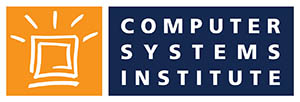Certifications are gateways to building competence and credibility in the information technology (IT) industry. For many professionals, a CompTIA certification is a foundational step toward achieving their career goals. These globally recognized certifications equip individuals with skills that are relevant across multiple IT roles and businesses.
What sets CompTIA certifications apart is their strong emphasis on practical, hands-on learning. This approach builds theoretical knowledge and ensures learners can tackle real-world challenges confidently. Understanding the importance of hands-on experience in CompTIA and matriculating at an institution that facilitates this can help you enter the IT industry with skills employers seek.
Bridges the Gap Between Theory and Practice
IT certifications often involve rigorous study and the grasping of complex concepts, theories, and methodologies. While these are essential for understanding the foundations of information technology, they remain incomplete without hands-on experience.
Knowing how a network firewall works theoretically is helpful. But it’s being able to set one up, configure it, and troubleshoot issues in a simulated or real-world environment that brings the concept to life.
CompTIA recognizes this gap and addresses it by embedding practical challenges in its certification structure. For instance, many CompTIA programs, such as CompTIA Network+ and CompTIA Security+, introduce performance-based questions.
These questions go beyond multiple-choice formats and simulate real-world tasks. Learners might have to configure a network, identify vulnerabilities in a system, or manage protocols, which ensures they leave with tangible skills they can apply immediately.
This type of experiential learning guarantees that the skills students acquire are actionable. They walk away ready to handle systems, troubleshoot errors, and contribute meaningfully to team projects without extended periods of onboarding or training.
Provides a Competitive Edge
Employers often seek candidates who can hit the ground running. Academic knowledge is valuable, but being able to demonstrate skill in practical scenarios makes a job candidate stand out. This is especially true in sectors such as networking and cybersecurity, where no two issues are identical, and the ability to respond dynamically is a priority.
For example, CompTIA certifications focused on networking prepare candidates to deal with complex challenges such as setting up network systems for organizations or addressing unexpected connectivity problems. Certifications like Network+ ensure that individuals understand not just the theory behind networks but also how to manage routers, switches, and subnets actively. This is possible because learners engage directly with tools, platforms, and simulated scenarios common in networking roles.
Being “job-ready” on day one can give candidates a significant edge in hiring processes. Employers who see certifications like CompTIA paired with evidence of hands-on experience are more likely to select these individuals over those lacking practical exposure.
Hands-On Training in Networking Career Programs

Institutions offering CompTIA-centered networking career programs often recognize the specific demands of IT roles. Enter the Networking Career Program offered by Computer Systems Institute.
Our program, designed with a CompTIA certification training concentration, goes a step further by integrating hands-on labs, robust simulations, and in-depth project work. International students, who may face additional barriers such as language or cultural differences when entering the workforce, particularly benefit from this kind of experiential learning. A structured environment that allows for trial, error, and immediate feedback can accelerate their professional growth.
For students aiming to leverage certifications to access opportunities abroad, the ability to perform under real-world conditions can be a deciding factor for recruiters. Simulations and practical labs can ultimately be confidence boosters, ensuring candidates enter interviews with demonstrable proof of their capabilities.
Builds Problem-Solving and Interpersonal Skills
Another important outcome of hands-on experience in CompTIA is the development of problem-solving skills. When candidates work on simulated real-world issues, they learn to think critically and find solutions effectively.
For instance, a learner working on cybersecurity might encounter a simulation of a system breach. Instead of just answering questions about how breaches occur, they actively work to diagnose vulnerabilities and manage the problem within the parameters of the exercise.
Practical sessions also have a collaborative component. Networking, for example, often involves working on systems that affect multiple teams and departments. Hands-on workshops or group exercises during training foster soft skills such as teamwork, communication, and conflict resolution, which are key to success in professional environments.
Prepares for Certification Exams and Beyond
CompTIA’s focus on performance-based questions ensures candidates are familiar with practical tasks they might encounter in the industry. For instance, configuring an IP address or troubleshooting a DNS server during the certification exam mirrors tasks commonly performed in networking jobs.
Beyond the exam, candidates become accustomed to working with industry-standard tools and techniques, flattening the learning curve for new on-the-job challenges. Education that integrates hands-on experience empowers students to feel comfortable navigating software, hardware, or other systems that align with their certifications.
Introduces Real-World Tools and Technologies
CompTIA’s hands-on training approach often includes working with technologies and platforms that are directly relevant to the workplace. From virtual machine setups to network troubleshooting using terminal commands, learners gain exposure to the kinds of tools they’ll use regularly in their careers.
While a novice IT professional might hesitate to modify settings on expensive hardware or organizational systems due to fear of errors, simulations provide safe spaces for exploration. This eases anxiety about making mistakes and results in graduates who are more adept and innovative when entering the field.
Students tackling configuring Windows OS within a Microsoft-focused program won’t just read about system management but work on configuring user accounts or implementing security patches during lab sessions. This kind of immersion builds familiarity with complex systems and gives learners a sense of ownership over their progress.
Long-Term Benefits of Experiential Learning

The importance of gaining hands-on experience extends far beyond the initial hiring process. IT professionals often work in environments where new systems, protocols, and technologies arise rapidly. The foundation laid during their training shapes their ability to adapt to these changes.
Someone who learned cybersecurity through experiential methods will be better prepared to learn advanced tools emerging in future roles. Complex environments won’t intimidate professionals who have the benefit of practical coursework, making them more resilient as industry demands evolve.
Boosts Career Confidence
Ultimately, certifications are not just qualifications. They represent an individual’s competence, readiness, and value to an organization. Incorporating hands-on elements into certification programs ensures learners graduate with work-ready talents. This levels the playing field for candidates competing for top roles and provides a head start in tackling their professional responsibilities successfully.
Educational institutions that prioritize practical elements in their certification programs give their students indispensable benefits. By being prepared for real-world challenges from the start, these professionals can thrive academically and professionally on a global stage.







